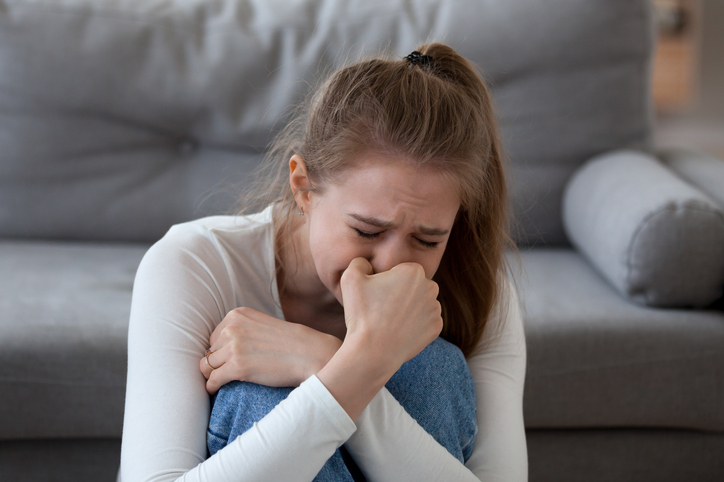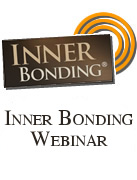What Are You Afraid to Feel?
By Dr. Margaret PaulOctober 25, 2021
Are you stuck in wounded pain due to avoiding your deeper existential pain of life?
 We desire to find the path to peace, joy, and freedom. We strive to feel lovable, worthy, and secure. We know that if we do our Inner Bonding work and open to our connection with Spirit, we will feel all of that. Yet we don't. We put off dialoguing for days or weeks. We stay stuck in our misery or numbness. Why? What are we so afraid of, if we open to learning about loving ourselves?
We desire to find the path to peace, joy, and freedom. We strive to feel lovable, worthy, and secure. We know that if we do our Inner Bonding work and open to our connection with Spirit, we will feel all of that. Yet we don't. We put off dialoguing for days or weeks. We stay stuck in our misery or numbness. Why? What are we so afraid of, if we open to learning about loving ourselves?
I searched for many years for the answer to this question. Over and over, I would find myself falling out of grace and joy and into anxiety and stress. Each time it was because I failed to take care of myself in some way.
The problem is that all our feelings live in the same place in the heart. Pain resides in the same place as joy. We cannot numb out our pain without squelching our joy.
What is the pain we are striving so hard to avoid feeling?
Most people feel a lot of pain. We feel anxious, frightened, depressed, hurt. Since we are often in pain, it doesn't seem to make sense that we are also avoiding pain. Yet that is exactly what we are doing.
As unhappy as we may be feeling, when we are acting out from our wounded self, we are avoiding an even deeper pain that we believe we can’t manage.
There are numerous feelings which most people want to avoid at all cost: aloneness, loneliness, heartbreak, grief, and helplessness over others and outcomes.
Aloneness is what we feel inside when we have abandoned ourselves and we are disconnected from ourselves and from our spiritual guidance. Loneliness is what we feel when we cannot connect with another, either because our heart is closed, their heart is closed, both of our hearts are closed, or there is no one there with whom to connect.
When we were babies and small children, we could not allow ourselves to feel the very big and painful feelings of loneliness, heartbreak, grief, and helplessness over others. We could not have managed these feelings and we might have died of despair had we felt the depth of them. So, we learned many protections to avoid feeling these very painful feelings.
The problem is that you might still think you will die if you feel these feelings, so you might still be avoiding them.
Instead of feeling your deeper existential painful feelings of life, you might get angry, withdraw, eat, drink, take drugs, watch TV, get busy, overwork, or indulge in many other addictions to avoid feeling the pain of your loneliness, heartbreak, grief and helplessness over others and outcomes.
Yet loneliness in our society is unavoidable. Since many people spend their lives with their hearts closed, trying to avoid their pain, it’s impossible not to be around people whose hearts are closed much of the time. If we choose to avoid feeling our loneliness and helplessness over others, then we, too, will close our heart. However, when we close our heart, we also close down our love, peace, and joy. Then we are stuck with the anxiety, fear, depression, anger, and hurt that are endemic in our society.
As an adult, you will not die if you open to feeling your loneliness, heartbreak, grief, and helplessness.
These feelings are quite tolerable if you compassionately hold your inner child while bringing through love from spirit. The willingness to feel the pain of loneliness, heartbreak, grief, and helplessness opens the door to joy, peace, and freedom. The more you open to compassionately loving yourself when you feel these deeper painful feelings, the more you are able to embrace the privilege of this sacred journey of evolving your soul in your ability to love yourself and others. There is great joy in the journey, even in the midst of pain.
Join Dr. Margaret Paul for her 30-Day at-home Course: "Love Yourself: An Inner Bonding Experience to Heal Anxiety, Depression, Shame, Addictions and Relationships."
 Send this article to a friend
Send this article to a friend  Print this article
Print this article  Bookmarked 2 time(s)
Bookmarked 2 time(s)
Comments
| Author | Comment | Date |
|---|---|---|
| Join the Inner Bonding Community to add your comment to articles and see the comments of others... | ||

Daily Inspiration
Send blessings of love to those around you who are grumpy, angry, blaming or withdrawn. Reassure your inner child that others' behavior is not about you. Remember: you can help others with your love but you cannot control their intent.
By Dr. Margaret Paul

 Share with Del.icio.us
Share with Del.icio.us Share with Digg
Share with Digg







